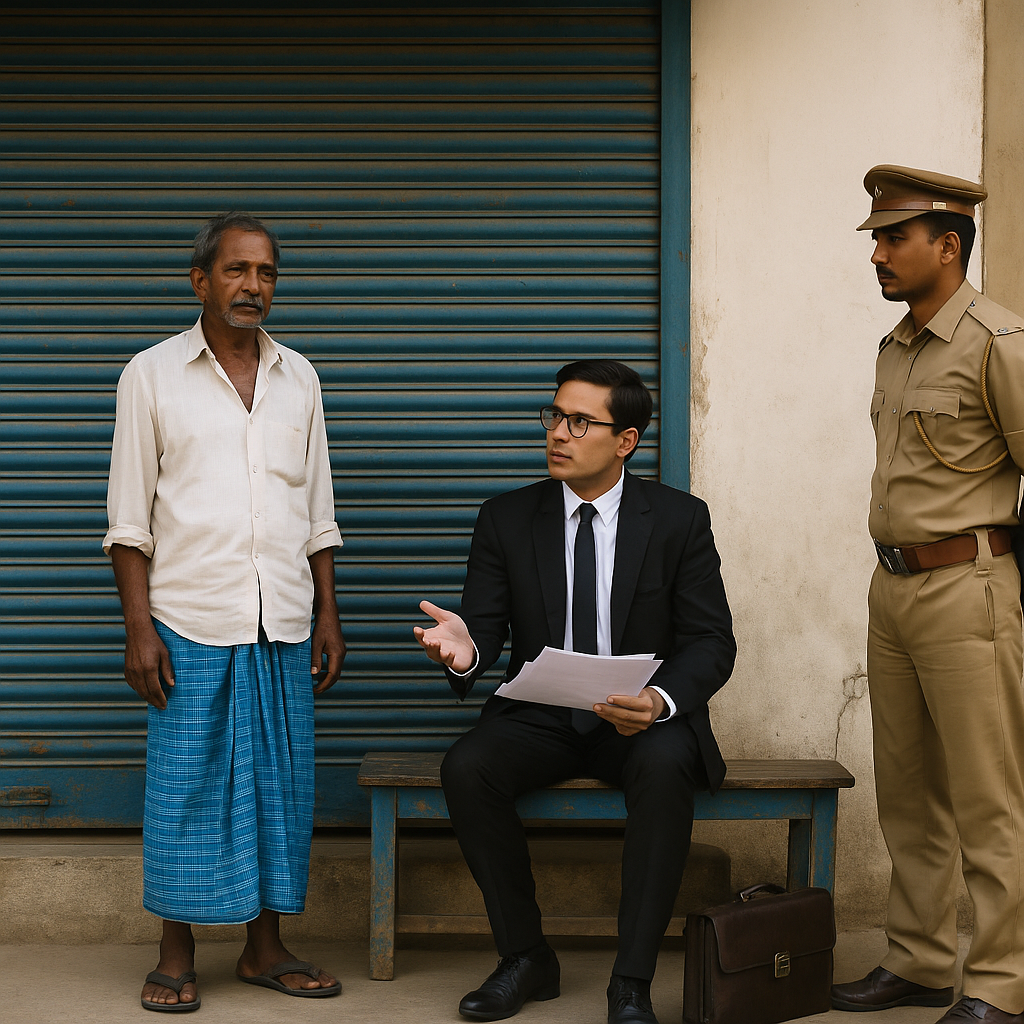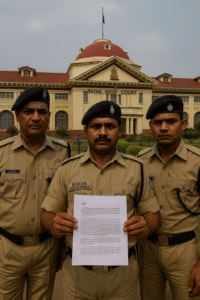The petitioner, a licensed Fair Price Shop (FPS) dealer under the Bihar Fair Price Shop Order, 2007, approached the Patna High Court after the local Sub-Divisional Officer (SDO) cancelled the shop’s licence. The cancellation followed a joint inspection on 3 February 2015 when the shop was found closed. The appellate authority (Collector) later upheld the SDO’s decision. In its oral judgment dated 16 March 2021, the Patna High Court allowed the writ petition, quashed both orders, and held that cancelling the licence for a single instance of closure—without any prior notice of wider irregularities—was disproportionate.
The case began with an inspection conducted by the Block Development Officer on 3 February 2015. The team recorded that the shop was shut and no notice explaining the closure was displayed. A show-cause notice was issued to the dealer, who replied that he had traveled to Deogarh for religious worship and fell ill on the return journey, resulting in hospital admission. The SDO rejected this explanation and cancelled the licence by Memo No. 307 dated 20 February 2015. The dealer’s statutory appeal in Appeal Case No. 132 of 2015-16 was dismissed on 18 May 2018, leading to the writ petition before the High Court.
Before the High Court, the petitioner argued that a sole day’s closure, particularly when supported by a plausible explanation of sudden illness, did not amount to a gross irregularity justifying the extreme step of licence cancellation. The petitioner relied on a Division Bench order in CWJC No. 10213 of 2010 (decided on 22 June 2012) to support the argument of proportionality in regulatory actions. The State, meanwhile, attempted to point to “other several irregularities” allegedly committed by the dealer but conceded that those were not the subject of the show-cause or the present proceedings.
The Court focused on two core principles: proportionality of punishment and adherence to natural justice in administrative decisions. First, the Court noted that the present proceedings were confined strictly to the allegation that the shop was found closed on the day of inspection. If other irregularities existed, they had to be the subject of a separate proceeding with appropriate notice; they could not be used—implicitly or otherwise—to justify cancellation in a proceeding that never put the dealer on guard about those additional accusations. Second, even for the single allegation of shop closure, the dealer had offered a specific and reasonable explanation—travel for worship followed by sudden illness and hospitalization. In such circumstances, the Court found that outright cancellation was not a measured response. Lesser measures (such as warning, minor penalty, or directing improved compliance) would have served the purpose of enforcing discipline without destroying the dealer’s livelihood for a one-off failure.
Accordingly, the High Court set aside the SDO’s Memo No. 307 dated 20 February 2015 as well as the appellate order dated 18 May 2018. The writ petition was allowed, and the Court directed that “the consequences will follow.” In practice, this means that the cancellation ceases to operate and any collateral actions flowing from that cancellation must also be reversed, subject to any lawful fresh proceedings the authorities may independently initiate on other charges, with due notice and opportunity of hearing.
This judgment thus clarifies that FPS licence cancellations—serious actions that disrupt the public distribution ecosystem and an individual’s livelihood—must be guided by proportionality and proper procedure. When the State relies on multiple alleged irregularities, each must be fairly put to the licensee with a clear show-cause. Authorities cannot cancel a licence on the basis of un-noticed allegations, nor may they treat a single-day closure—particularly one explained by sudden illness—as a gross violation meriting the harshest penalty. The ruling reinforces the need for reasoned decision-making in the PDS framework: the goal is to ensure uninterrupted supply to beneficiaries, not to impose punitive measures untethered from the gravity of the lapse.
By limiting the scope of review to the single allegation actually noticed and by rejecting the attempt to rely on unstated irregularities, the Court reaffirmed the fundamentals of fair administrative process. For FPS dealers and administrators alike, this is a reminder that compliance regimes work best when procedures are transparent, penalties are calibrated to the misconduct, and affected persons receive a meaningful chance to explain themselves.
Significance or Implication of the Judgment
This decision has practical significance for both the general public and government authorities:
- For the public distribution system (PDS) and beneficiaries: It ensures that FPS operations are regulated in a way that is fair and sustainable. A dealer is not arbitrarily removed for a one-off lapse if there is a credible explanation. This avoids unnecessary disruption to supply chains in villages and small towns.
- For FPS dealers: It underscores that while adherence to opening hours and notice requirements is mandatory, any penalties must be proportionate. Dealers who face sudden emergencies are not left without recourse, provided they respond promptly and transparently to show-cause notices.
- For administrators: The ruling serves as guidance to tailor penalties to the nature of the violation, maintain clean records, and issue fresh, properly framed show-cause notices for each distinct allegation. It reduces the risk of orders being struck down for mixing unstated accusations with noticed charges.
- For governance and litigation management: The judgment encourages reasoned decision-making and reduces unnecessary litigation by insisting on clear charges and measured penalties. Quashing disproportionate orders at the High Court level helps set administrative standards across districts.
Legal Issue(s) Decided and the Court’s Decision with reasoning
- Whether cancellation of an FPS licence for a single-day closure, when the dealer offers a reasonable medical explanation, is proportionate.
Decision: No. The Court held cancellation was disproportionate to the lapse and set aside the orders. A lesser penalty, if any, could have addressed the issue. - Whether authorities can rely on “other irregularities” not mentioned in the show-cause to sustain cancellation.
Decision: No. The scope of the proceeding was confined to the alleged closure on 3 February 2015. Un-noticed charges cannot be used to justify cancellation in that proceeding; separate lawful proceedings would be required. - Whether the appellate authority erred in affirming cancellation without addressing proportionality and the specific explanation offered by the dealer.
Decision: Yes. The appellate order was also set aside because it failed to correct the disproportionality and did not engage with the explanation meaningfully.
Judgments Referred by Parties (with citations)
- CWJC No. 10213 of 2010, Patna High Court (Division Bench), decided on 22.06.2012 — cited by the petitioner to underscore proportionality and that cancellation should not be imposed for minor or singular lapses when lesser penalties suffice.
Case Title
Ajab Lal Yadav v. State of Bihar & Ors.
Case Number
Civil Writ Jurisdiction Case No. 23505 of 2018.
Citation(s)
2021(2) PLJR 191
Coram and Names of Judges
Hon’ble Mr. Justice Shivaji Pandey.
Names of Advocates and who they appeared for
- Mr. Rajeev Kumar Labh — for the petitioner.
- Mr. U.P. Singh, AC to SC-4 — for the respondents.
Link to Judgment
MTUjMjM1MDUjMjAxOCMxI04=-skEJfnORfR0=
If you found this explanation helpful and wish to stay informed about how legal developments may affect your rights in Bihar, you may consider following Samvida Law Associates for more updates.








